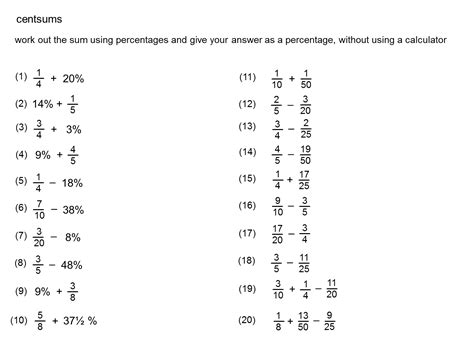What Is 2 Out Of 5 As A Percentage
Kalali
Mar 29, 2025 · 5 min read

Table of Contents
What is 2 out of 5 as a Percentage? A Comprehensive Guide
Understanding percentages is a fundamental skill in many aspects of life, from calculating discounts and taxes to analyzing data and understanding statistics. This comprehensive guide will delve deep into how to calculate "2 out of 5 as a percentage," providing not just the answer but also the underlying concepts and various methods to arrive at the solution. We'll explore different approaches, highlighting their applications in various scenarios.
Understanding Fractions, Decimals, and Percentages
Before jumping into the calculation, let's clarify the relationship between fractions, decimals, and percentages. They are all different ways of representing parts of a whole.
-
Fraction: A fraction represents a part of a whole, expressed as a ratio of two numbers (numerator/denominator). In our case, "2 out of 5" is represented as the fraction 2/5.
-
Decimal: A decimal is another way to represent a part of a whole, using a base-10 system. It's a number with a decimal point, separating the whole number from the fractional part.
-
Percentage: A percentage represents a part of a whole as a fraction of 100. It's denoted by the symbol "%".
Method 1: Converting the Fraction to a Decimal then to a Percentage
This is arguably the most straightforward method. We'll first convert the fraction 2/5 into a decimal, then multiply by 100 to express it as a percentage.
Step 1: Convert the Fraction to a Decimal
To convert the fraction 2/5 to a decimal, we simply divide the numerator (2) by the denominator (5):
2 ÷ 5 = 0.4
Step 2: Convert the Decimal to a Percentage
To convert the decimal 0.4 to a percentage, we multiply it by 100:
0.4 x 100 = 40%
Therefore, 2 out of 5 is 40%.
Method 2: Using Proportions
This method utilizes the concept of proportions to solve the problem. We can set up a proportion to find the equivalent percentage.
Setting up the Proportion
We know that 2 out of 5 is equivalent to 'x' out of 100 (since percentage is always out of 100). We can write this as a proportion:
2/5 = x/100
Solving for x
To solve for x, we cross-multiply:
5x = 200
Then, divide both sides by 5:
x = 40
Therefore, x = 40%, confirming that 2 out of 5 is 40%.
Method 3: Simplifying the Fraction Before Conversion
Sometimes, simplifying the fraction first can make the conversion to a decimal easier. While not strictly necessary in this case, it's a useful technique for more complex fractions.
Simplifying the Fraction
The fraction 2/5 is already in its simplest form, as 2 and 5 have no common factors other than 1. However, let's illustrate with an example where simplification is helpful. If we had the fraction 4/10, we could simplify it to 2/5 by dividing both the numerator and the denominator by 2.
Converting the Simplified Fraction
Once simplified, the conversion to a decimal and percentage follows the same steps as Method 1. 2/5 = 0.4 = 40%.
Real-World Applications of Percentage Calculations
Understanding how to calculate percentages is crucial in various real-world situations:
1. Discount Calculations
Stores frequently offer discounts on products. For example, a "40% off" sale means you'll pay 60% of the original price. Understanding percentages allows you to quickly calculate the final price.
2. Tax Calculations
Sales tax is calculated as a percentage of the purchase price. Knowing how to calculate percentages is essential to determine the total cost, including tax.
3. Grade Calculations
In many educational systems, grades are often expressed as percentages. Understanding percentages helps students track their academic progress.
4. Data Analysis
Percentages are widely used in data analysis to represent proportions and trends. For instance, survey results often present data as percentages to make comparisons easier.
5. Financial Planning
Percentages play a significant role in financial planning, from calculating interest rates on loans and investments to budgeting and managing expenses.
Advanced Percentage Calculations: Beyond the Basics
While this guide primarily focuses on calculating 2 out of 5 as a percentage, let's briefly touch upon more advanced percentage calculations:
1. Calculating Percentage Increase or Decrease
These calculations are useful for tracking changes in values over time. The formula for percentage increase is: [(New Value - Old Value) / Old Value] x 100. The formula for percentage decrease is similar, but the difference is subtracted from the old value.
2. Calculating Percentage Points
Percentage points represent the absolute difference between two percentages. For instance, a rise from 20% to 25% is a 5-percentage-point increase, not a 25% increase.
3. Working with Percentages in Complex Equations
In more complex scenarios, percentages might be embedded within other mathematical operations. Understanding the order of operations (PEMDAS/BODMAS) is crucial for solving these equations accurately.
Conclusion: Mastering Percentage Calculations
The ability to calculate percentages is a valuable skill with far-reaching applications. This guide has demonstrated three different methods for calculating "2 out of 5 as a percentage," emphasizing the fundamental concepts and providing real-world examples. Whether you're tackling simple percentage calculations or more complex problems, a strong grasp of these principles is essential for success in various fields. Remember to practice regularly and explore various scenarios to solidify your understanding and build confidence in your percentage calculation skills. From simple everyday tasks to more complex data analysis, understanding percentages empowers you to make informed decisions and navigate numerical information effectively. By mastering these calculations, you unlock a powerful tool for tackling various mathematical challenges and interpreting data more effectively.
Latest Posts
Related Post
Thank you for visiting our website which covers about What Is 2 Out Of 5 As A Percentage . We hope the information provided has been useful to you. Feel free to contact us if you have any questions or need further assistance. See you next time and don't miss to bookmark.
